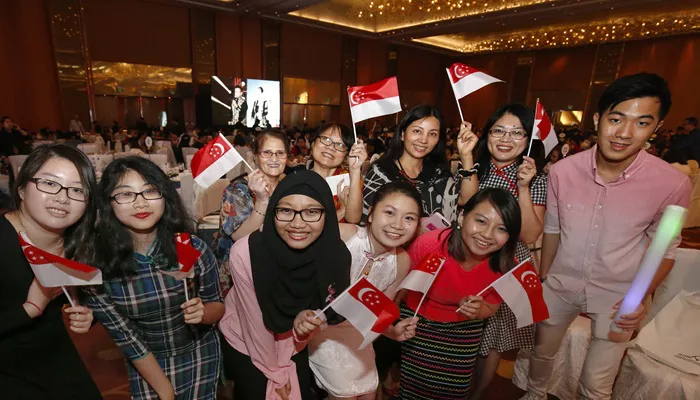Singapore, known for its thriving economy and business-friendly environment, attracts a significant number of foreign workers each year. As a British immigration lawyer, I often receive inquiries about the ease of obtaining a work visa in Singapore. In this article, we will explore the various types of work visas, their requirements, and the application process to determine how straightforward it is to secure employment in the city-state.
Types of Work Visas in Singapore
Singapore offers a range of work visas catering to different categories of professionals, skilled workers, trainees, and students. The most common types of work visas are:
Employment Pass (EP): Available to foreign managers, executives, and professionals who earn a minimum monthly salary of S$5,000 (as of September 2022). The financial services sector has a higher threshold of S$5,500 per month.
S Pass: Targeted at mid-level skilled workers who earn a minimum monthly salary of S$2,500 (as of September 2022). Foreign worker quotas and levies apply.
Work Permit for Foreign Workers: Available to workers from specific countries, allowing them to work in certain sectors such as construction, manufacturing, marine shipyard, process, or services. Foreign worker quotas and levies apply.
Work Permit for Foreign Domestic Workers (FDW): Available to workers between the ages of 23 and 50 from specific countries, such as Bangladesh, Cambodia, Hong Kong, India, Indonesia, Macau, Malaysia, etc.
EntrePass: Available to investors or entrepreneurs who want to start a business in Singapore.
Requirements for Work Visa Application
To apply for a work visa in Singapore, there are several key requirements that must be met:
Job Offer: The applicant must have a job offer from a locally incorporated company in Singapore.
Minimum Qualifying Salary: Singapore sets minimum qualifying salary thresholds for international workers. As of September 2022, candidates for an Employment Pass must earn at least SGD 5,000 per month, with the financial services sector having a higher threshold of SGD 5,500 per month.
Sponsorship: Every candidate seeking employment in Singapore must have sponsorship from a legally incorporated Singaporean entity.
Dependent’s Pass: Employment Pass, S Pass, and ONE Pass holders may apply for a Dependent’s Pass, allowing their spouses and children to join them in Singapore for up to two years. Family members who do not qualify for the Dependent’s Pass may need to obtain a Long-Term Visit Pass (LTVP).
Application Process for Work Visas
Obtaining a work visa in Singapore involves several steps:
Job Offer: The applicant must secure a job offer from a locally incorporated company in Singapore.
Employer Application: The employer or a third-party local entity must submit the work visa application online through the Ministry of Manpower’s online Employment Pass (EP) eService. The application requires the company’s up-to-date business profile.
In-Principle Approval (IPA) Letter: If the application is approved, the employer will receive an In-Principle Approval (IPA) letter within three weeks.
Employee Travel: Upon receiving the IPA letter, the employee can travel to Singapore within six months (or 60 days for an S Pass).
Work Visa Issuance: The employer must apply online for the work visa issuance once the employee is in Singapore. The application requires payment of the processing fee.
Issuance Notification Letter: If the application is successful, the employer will receive a work pass approval letter. This document allows the employee to start working and enter and exit Singapore as needed until they receive their employment pass card.
Registration at the Employment Pass Services Centre (EPSC): All employees must register at the EPSC within two weeks of receiving the approval letter to receive their official work pass card.
Factors Affecting the Ease of Obtaining a Work Visa
While Singapore offers a range of work visas, the ease of obtaining one depends on several factors:
Applicant’s Qualifications and Experience: Highly skilled professionals with relevant qualifications and significant work experience are more likely to secure an Employment Pass.
Employer’s Reputation and Industry: Companies with a strong reputation and those operating in high-growth industries may have an advantage in securing work visas for their employees.
Foreign Worker Quotas and Levies: Certain work visas, such as the S Pass and Work Permit for Foreign Workers, are subject to foreign worker quotas and levies, which can impact the ease of obtaining these visas.
Processing Time: The processing time for work visa applications can vary depending on the type of visa and the applicant’s circumstances. Employment Pass applications are typically processed within three weeks, while S Pass and Work Permit applications may take longer.
Challenges and Considerations
While Singapore is generally considered a favorable destination for foreign workers, there are some challenges and considerations to keep in mind:
Increasing Competition: As Singapore continues to attract global talent, competition for work visas has intensified, making it more challenging for applicants to stand out.
Changing Policies: Singapore’s work visa policies are subject to change, and applicants must stay informed about the latest requirements and regulations.
Dependent’s Pass Limitations: While Employment Pass, S Pass, and ONE Pass holders can apply for a Dependent’s Pass, the application process can be complex, and there are restrictions on the types of employment dependents can pursue in Singapore.
Employer Sponsorship: Securing a job offer and employer sponsorship is a crucial step in the work visa application process. Applicants must be proactive in networking and building relationships with potential employers.
see also: How Much Is the Fine for Overstaying in Singapore?
Conclusion
Obtaining a work visa in Singapore is not entirely straightforward, but it is certainly achievable for qualified professionals with relevant skills and experience. The process involves meeting specific requirements, navigating the application process, and overcoming potential challenges. As a British immigration lawyer, I recommend that applicants thoroughly research the various work visa options, stay informed about the latest policies and regulations, and work closely with their employers to ensure a smooth application process.


